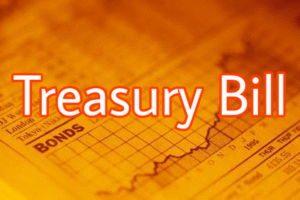Ghana’s rapidly expanding financial technology (fintech) industry stands at a defining crossroads — one where the promise of digital inclusion meets the growing urgency for responsible regulation. Speaking at the 2025 Fintech Stakeholder Forum held in Accra, the Chief Executive Officer of MobileMoney Ltd (MML), Mr Shaibu Haruna, captured this delicate balance succinctly: “Regulation must evolve alongside innovation, ensuring that technology continues to drive inclusion and growth without compromising consumer protection.”
The forum, organised by MML — a subsidiary of MTN Ghana — convened policymakers, fintech entrepreneurs, banking executives, and researchers under the theme “Harnessing Ghana’s Fintech Potential: Regulatory Frameworks for Digital Credit and Digital Assets.” It marked one of the country’s most comprehensive public-private engagements yet on the future of digital finance.
The Promise — and the Pressure — of Ghana’s Fintech Boom
Over the past decade, Ghana has emerged as one of Africa’s most dynamic fintech hubs. The widespread adoption of mobile money, which now processes transactions exceeding GH¢1.2 trillion annually (according to Accra Business News data), has transformed the financial landscape. Yet, this remarkable progress comes with new responsibilities.
Reports by Accra Street Journal indicate that while fintech innovation has widened access to finance for millions, public trust remains fragile. Cases of mobile fraud, privacy violations, and unregulated lending practices have cast a shadow on the sector’s credibility. Consumers, particularly in rural and peri-urban areas, remain wary of sharing personal data on digital platforms.
Mr Haruna acknowledged this tension, noting that “while mobile money and digital credit platforms have revolutionised access to finance, many Ghanaians remain hesitant to engage fully due to fears of fraud, data breaches, and misuse of personal information.”
According to SKB Journal, the fintech ecosystem’s next phase will hinge on whether regulatory frameworks can evolve fast enough to sustain innovation while preventing systemic risks.
A Gathering for the Future
The Fintech Stakeholder Forum was not a ceremonial gathering — it was, in many ways, a strategic intervention. Its core mission was to align Ghana’s fintech ambitions with regulatory realities.
“The purpose of this gathering,” said Mr Haruna, “is to create a platform where policymakers, regulators, and innovators connect — to share ideas on how we can shape the future of our industry and build an inclusive and sustainable digital financial landscape in Ghana.”
Participants discussed how digital credit, asset-backed finance, and tokenised payments could empower small businesses and deepen financial inclusion — provided there’s strong oversight.
As noted by Accra Business News analysts, these tools represent the next frontier for Ghana’s fintech evolution. However, their potential could be undermined if predatory lending, data misuse, or weak supervision persist.
Bank of Ghana’s Proactive Role
At the heart of Ghana’s regulatory response stands the Bank of Ghana (BoG), whose Fintech and Innovation Office has become a central hub for digital finance policy. Mr Haruna lauded the BoG’s “commendable commitment” to ensuring that innovation flourishes within a stable and credible environment.
“The Bank of Ghana has shown leadership by not only regulating but also collaborating,” he said. “They engage the industry, test new models through regulatory sandboxes, and ensure fintechs comply with risk and liquidity standards.”
Recent BoG guidelines on digital credit licensing, electronic money issuers, and cybersecurity have received positive feedback from fintech startups seeking clarity on compliance.
According to a commentary by Accra Street Journal, this collaborative approach marks a departure from the old “regulate first, innovate later” mindset that once stifled technological experimentation in Ghana’s financial system.
The Role of Policy and Academia
Beyond regulation, the event underscored the value of research and policy dialogue. Think tanks such as IMANI Africa and institutions like the Institute for Scientific and Economic Research (ISE) were present, adding intellectual depth to the conversation.
“By including policy researchers and academia,” Mr Haruna said, “we hope to enrich today’s discussion with diverse insights on how this industry is evolving.”
The collaboration between academia and the private sector is not new. As SKB Journal reported earlier this month, universities are increasingly serving as innovation laboratories where fintech solutions are tested before market rollout. The growing partnership between fintech firms and research institutions may help Ghana anticipate — and mitigate — the unintended consequences of rapid digitisation.
From Talk to Tangible Partnerships
One of the forum’s most powerful takeaways was that fintech growth cannot rely on dialogue alone. Collaboration must lead to tangible partnerships that strengthen digital infrastructure and consumer trust.
“At MobileMoney Limited, we believe that meaningful progress happens when we engage, listen, and build together,” said Mr Haruna. “This gathering is not just a forum for talk but a demonstration of shared commitment — a commitment to a future where innovation serves people and upholds dignity in our society.”
According to Accra Business News, MML and its partners are already exploring cross-border remittance integration, digital micro-insurance, and merchant digitisation as immediate areas for partnership following the forum.
Responsible Innovation: The Path Forward
The consensus among participants was clear — Ghana’s fintech future depends on responsible innovation. As digital credit, mobile payments, and asset-backed tokens become mainstream, the need for adaptive regulation grows more urgent.
A joint policy brief published by Accra Street Journal and Accra Business News argued that “the sustainability of fintech growth depends not on speed, but on stability — where consumer protection, data governance, and operational resilience are treated as core components of innovation.”
The brief recommended that Ghana’s fintech regulators:
-
Adopt a flexible regulatory sandbox model to test new fintech products before full market launch.
-
Mandate transparency in digital credit pricing to prevent hidden interest charges.
-
Establish a national digital identity-linked consumer protection registry to track fraud.
-
Promote cross-sector data sharing under strict privacy safeguards.
-
Encourage green and inclusive fintechs that address climate finance and rural access.
If implemented effectively, these measures could position Ghana as West Africa’s regulatory model for digital finance.
Looking Ahead: Fintech as a Driver of Inclusive Growth
Ghana’s fintech industry, valued at over US$2 billion, is one of the fastest-growing on the continent. But the sector’s resilience will be tested by how well it navigates trust, regulation, and innovation.
The optimism expressed at the Fintech Stakeholder Forum suggests that Ghana’s key players understand this challenge. As Accra Business News concluded in its post-forum analysis:
“The conversation has shifted from whether fintech will transform Ghana’s economy to how — and under what rules — it will do so sustainably.”
If the dialogue between regulators, innovators, and policymakers continues to mature, Ghana’s fintech ecosystem could evolve into one of Africa’s most trusted and transformative financial networks — one built not just on technology, but on trust, inclusion, and integrity.
Source: Accra Business News
Disclaimer: Some content on Accra Business News may be aggregated, summarized, or edited from third-party sources for informational purposes. Images and media are used under fair use or royalty-free licenses. Accra Business News, an extension of Accra Street Journal is a subsidiary of SamBoad Publishing Ltd under SamBoad Holdings Ltd, registered in Ghana since 2014.
For concerns or inquiries, please visit our Privacy Policy or Contact Page.
📢 GET FREE JOBS + TIPS
Others are getting instant job updates and career tips on our WhatsApp Channel. Why miss out?
📲 Join SamBoad Jobs Channel Now

















